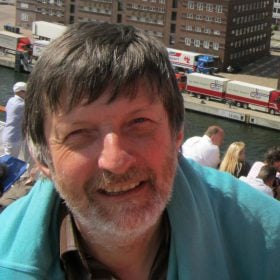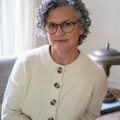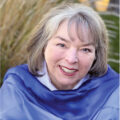 By Trisha Bleau Smith
By Trisha Bleau Smith
T4JYM: I was recently given the pleasure of reading and reviewing your book Gateways to God. Where did the idea for the book come from?
PL: I guess it was just the sense of a book that was out there waiting to be written. The question of how we can find real spiritual depth seems such a hot one right now. We get so dissatisfied with the shallowness and the babble…. And for myself, I’d found the Bible such a tremendous source of depth and long term roots in my own life, and there were so many things I’d learnt there, things that seemed really fundamental to a life-giving 21st-century spirituality… And I couldn’t think of anything else out there of quite the same kind. I’d hate to write a book that was the same as a hundred others in the shops; life is far too short for that – especially if you have kids!
T4JYM: Who have been your biggest influences in your life as a writer?
PL: I guess I’d been very fortunate. Britain is a small island and it really is feasible, if you choose, to be exposed to input from a wide range of diverse evangelical streams, each of whom are doing first-rate, Bible-based and Jesus-centered thinking. So that was good. And I did a PhD partly on C S Lewis, so that was helpful too. But then the first 20 years after university gave me the chance to be in mission in a lot of countries, Russia especially, and that meant being influenced by biblical Christians culturally very different from myself. And all kinds of windows open inside your head in that situation.
In fact writing Gateways to God made me acutely aware of the hundreds of people who have surely been my teachers. Writing an acknowledgements page is a bit of a farce really; we owe so much to so many! But for me personally, working with Christian students worldwide had given me chances to learn from many very diverse people, and so putting some of that into a form others could reuse was a major motive for writing the book. That was still more so with my more recent title, A Long Way East of Eden, which is again wanting to put together a very diverse range of material I’ve picked up on the frontlines all over the place, in a form that I hope is reusable for others.
T4JYM: So what’s that one about?
PL: Two things, really. First, just to give some fruitful ways of thinking about our postmodern culture: What’s really going on? what’s going wrong? how we can we put together what’s happening? And I think the loss of God illuminates far more than people realize about the messes we’ve gotten into; and I wanted to make some resources available, from rock, philosophy, politics and so forth, to help other brothers and sisters explain that reality in the place where they are. But also, I find a key argument people use against faith today is often, Well, it’s fine for you to believe, that’s great, but I don’t believe and that’s fine too. But it isn’t. Actually, it’s incredibly naive. And if you look deeply enough into the main pressure points our culture faces – for example, in identity, self worth, in hope, ethics, truth, intimacy – you find, over and over again, that the crisis and the emptiness stem from our loss of God. Now that doesn’t prove there’s a God; but what it does show is that the God-question is incredibly important. And we need to be able to make that point clear to others. So I was keen to make available the resources I’d picked up for doing that.
T4JYM: How has this book been received by the public? Has there been positive feedback?
PL: I’ve been really grateful to God; the reviews have been great. One of the two key UK evangelical magazines called it `breathtaking’ in its `irrefutable incisiveness’ and `daring depth and scope’, while the other called it `always entertaining… you cannot help but be informed, challenged and inspired’! I don’t think I shall pull that off in my life again! I guess the bad feedback on the ideas came, and comes, when I’m arguing along these lines with not-yet-Christians; they’re not going to be so keen! But to me it’s a good reason to trust your faith, that you can put it out in challenge to the sharpest non-Christian minds in the secular university, and they may not welcome it and occasionally you get bruised a bit, but in the end you find that year succeeds year and still no one shows you a convincing case against Christian faith. That really strengthens your confidence in what you know!
T4JYM: Are you ONLY a writer – meaning, was writing your full time job or did you have a job that you do full time and write on the side?
PL: No, I was working in evangelism and Bible teaching among students. Which meant that my teammates were people continually on the frontline where the most important ideas in the universe meet and clash – people working with and thinking around the most important issues there are. A fantastic community to be part of! And out of that – the late night discussions, conferences, chatting on trains, whatever – comes much of what’s good in my books, I guess.
T4JYM: What advice would you give to someone who wants to pursue a career in writing?
PL: Only spend the time if you’ve really got something to say. Something God has given you to say! And don’t rush. Take your time; learn reality. Get to know God better and the world better. Soak yourself in the whole Bible so that increasingly you see things through the eyes of truth. Find your way onto your personal `frontline’ of God’s mission and stay there – that’s the place to see things as they really are! Learn; listen; learn as much as you can from everyone you can. And make sure that in all you communicate you’re driven by God’s kingdom!





Be the first to comment